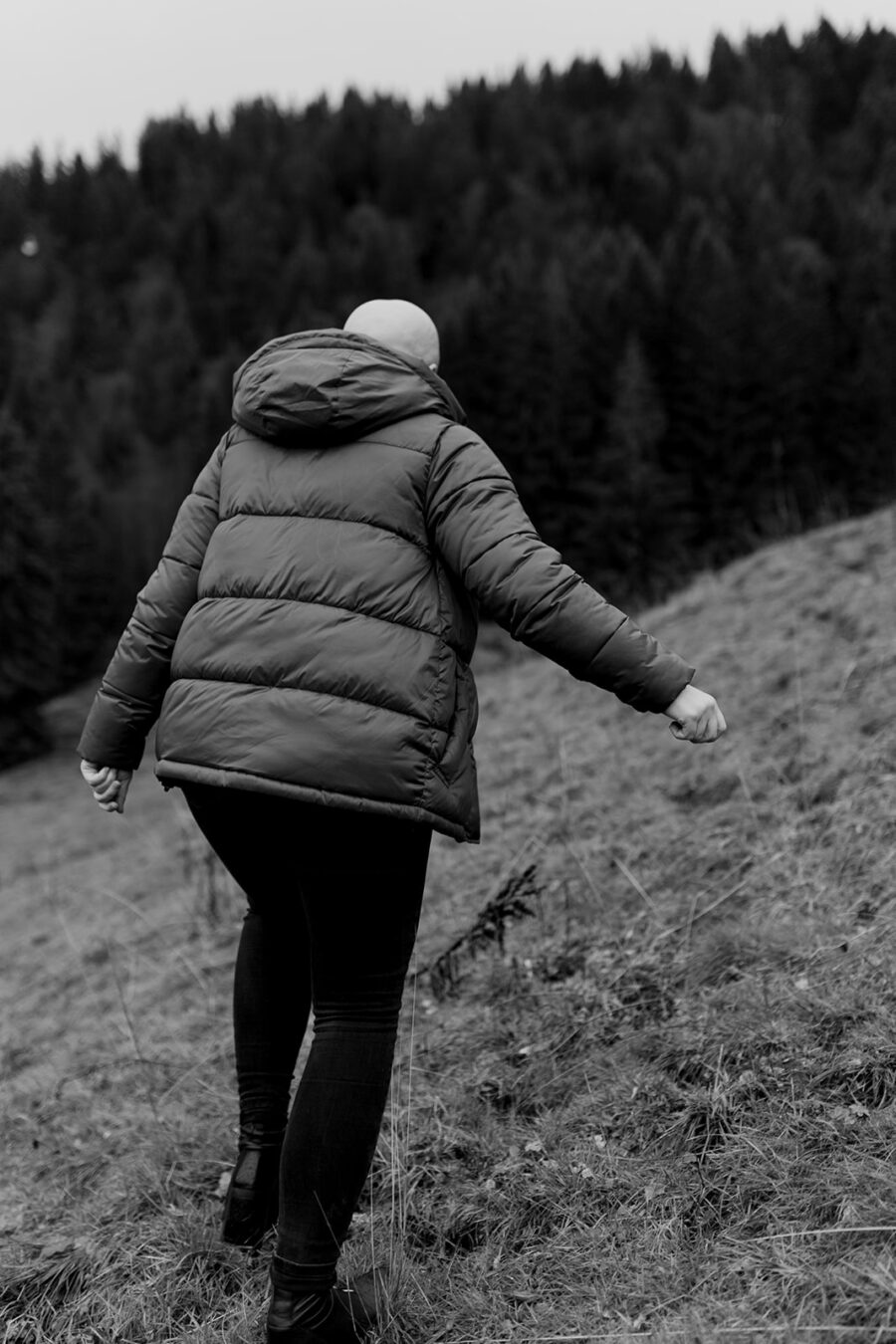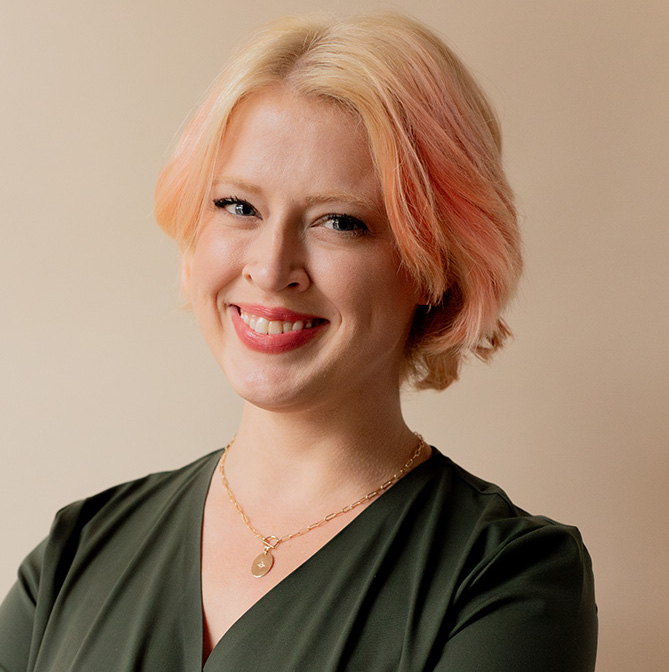
What We Can Learn From Overwintering
The flowers known as annuals bloom beautifully for just one season; the roots do not linger far past the first freeze, and the sole evidence of their brief life are the seeds left behind.
But when winter wipes the green from the earth, there are some plants whose roots remain intact, waiting out the freeze until spring beckons them. I think of my midwestern mother’s hostas, her lilies, the garlic she plants in fall and patiently waits to harvest until the following summer. The cold does not kill them — rather, the freeze makes the flowers and the harvest more abundant.
“Other plants, tenacious and tender, survive the harsh winter only with proper and thoughtful care.”
Other plants, tenacious and tender, survive the harsh winter only with proper and thoughtful care. I think of the geraniums my mother digs up and stores in paper bags in the garage, their leaves wilting and putting on a great show of death. Yet in the spring, when she removes the dried, brown leaves, it reveals the life that was there, dormant, all along.
This is the act of overwintering.
In this way, I am like a geranium. And my winter began well before December.
You see, I am currently navigating the final chapters of a divorce. An amicable one, but a source of grief and transition nonetheless — a winter of sorts. The cold front wasn’t sudden, rather you can see it rolling in throughout the pages of my journals, murmurs of a marriage that went from needing mended to needing ended. It was the most loving outcome we could envision, despite the heartbreak of it all.
“I uprooted myself and moved into a metaphorical paper bag in the garage, where my leaves shriveled and so many things I once loved fell away from me.”
As the frosts descended on my partnership, I began to remove myself from the extreme sadness by diving into work, into shallow-yet-time-consuming hobbies. I isolated myself to avoid bitter judgment from others, but also to avoid facing the things I knew were true. I uprooted myself and moved into a metaphorical paper bag in the garage, where my leaves shriveled and so many things I once loved fell away from me.
I was removed, but I was safe there. Dormant for a time.
We all experience winters like this. Whether they’re brought about by life transitions or losses of any kind, they might sneak up on us suddenly or grow gradually over time. What is a universal truth, though, is that these lonely seasons of our lives are ones of removal and isolation.
In my case, I began to notice the color fade from my life, in my wardrobe and my home. I said goodbye to journaling because I could no longer bear it, and spent longer hours gaming, and later nights drinking. I dove into work with a fervor that felt, on its surface, nourishing. To feel productive and needed — now that’s the ticket! Again, though, it only served as another distraction while my winter grew darker and colder still.
“I didn’t know it at the time, but I was going into hibernation. I was shutting down.”
It wasn’t intentional, and I didn’t know it at the time, but I was going into hibernation. I was shutting down.
Not, I think, in a bad way. Looking back I now see that my mind and body were protecting me — removing myself in the ways I thought might help, rather than facing the much more difficult truth.
This was the start of my own process of overwintering. This past year — years, even — have required me to step away from some of the more painful things and turn towards whatever helps me cope at the time. Winter was always going to come, in some way or another, and I was always going to turn into it with a sad resolve, gritting my teeth and just getting through it.
“Shifting my mindset from ‘enduring winter’ to ‘overwintering’ has granted me back the agency I thought I’d lost.”
This winter is teaching me something altogether new. It’s not really about getting through this difficult time as quickly as possible, but rather gently taking in the elements of the season that are meant to shape me. Experiencing the cold snaps that make the flowers bloom more bountifully.
Shifting my mindset from “enduring winter” to “overwintering” has granted me back the agency I thought I’d lost. Instead of watching all the bulbs I’ve planted in my garden die in the first frost — or grieving the loss of all the things that make me who I am — I’m digging them up, and letting them rest for a spell. Hobbies, interests, even certain relationships are on pause for a moment while I recoup myself. They’ll come back, if I overwinter well, or they’ll fall away and be replaced by something vibrant and new. Either way, there is hope.
“Surround yourself with people who will stand guard during your fiercest storms, build a warm space for your heart to land when the winds chill you to the bone.”
But what does it mean to overwinter well, outside of geraniums in paper bags? I’ve found the key is protection from the elements that most want to destroy you. Surround yourself with people who will stand guard during your fiercest storms; build a warm space for your heart to land when the winds chill you to the bone. Cope in healthful ways when you can, and give yourself grace for those days when self-care looks more like beer and mac and cheese than bubble baths and yoga.
“Meet yourself where you are at, too — we aren’t all as gentle as geraniums or as resilient as lilies.”
Meet yourself where you are at, too — we aren’t all as gentle as geraniums or as resilient as lilies. Perhaps all you need is an extra cup of warm tea in the evening to keep your roots going strong, or perhaps you need to remove yourself altogether by cutting contact, taking a trip, or exploring a trial separation. These things are difficult, but in order to thrive on the other side of winter, we might just need to uproot ourselves.
I think often of Katherine May’s book “Wintering,” which explores these very seasons of life and how we can still find purpose in them despite the pain.
“If happiness is a skill, then sadness is, too.”
– Katherine May
“If happiness is a skill, then sadness is, too,” writes May. Many of us are taught to avoid sadness as a negative thing, yet May argues that we can learn so much when we turn to face it head-on. “[Wintering] is the active acceptance of sadness. It is the practice of allowing ourselves to feel it as a need. It is the courage to stare down the worst parts of our experience and to commit to healing them the best we can. Wintering is a moment of intuition, our true needs felt keenly as a knife.”
As time marches on, and as my internal world begins to grow green once again, I’m reminded that this time has not been lost. Instead, stepping back — yes, even from the things I’ve loved — helped me feel the cold chill of heartbreak and be shaped by it for the better. Every dormancy we face offers us a period of reflection, and of absorbing what is true, even if it is profoundly sad.
“Overwintering teaches me that I am not, in fact, an annual whose life cycle is already finished.”
Overwintering teaches me that I am not, in fact, an annual whose life cycle is already finished. Everything I’ve done to this point has been in service of protecting myself, of ferrying myself through the death of winter and now, towards a pending spring. I see it already, in sprouts of self-confidence, flickers of new romantic flames, and the rebirth of passions I once considered dead.
I am meant to bloom again, and so are you.
Emily McGowan is the Editorial Director at The Good Trade. She studied Creative Writing and Business at Indiana University, and has over ten years of experience as a writer and editor in sustainability and lifestyle spaces. Since 2017, she’s been discovering and reviewing the top sustainable home, fashion, beauty, and wellness products so readers can make their most informed decisions. Her editorial work has been recognized by major publications like The New York Times and BBC Worklife. You can usually find her in her colorful Los Angeles apartment journaling, caring for her rabbits and cat, or gaming. Say hi on Instagram!




